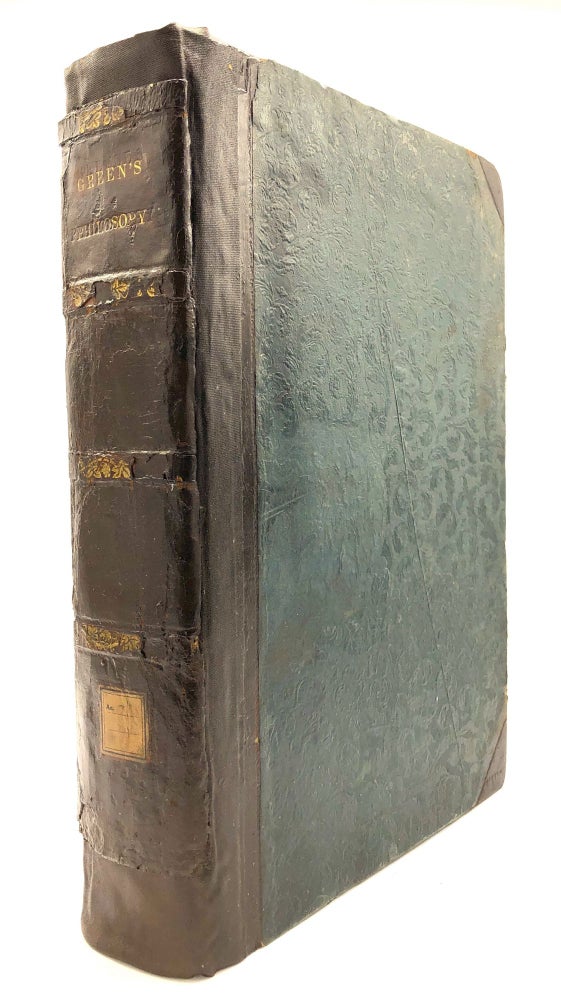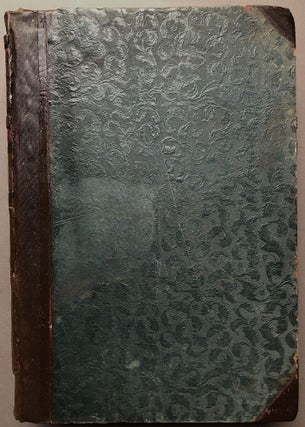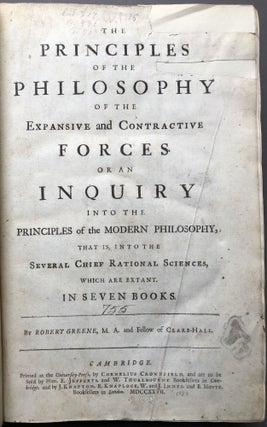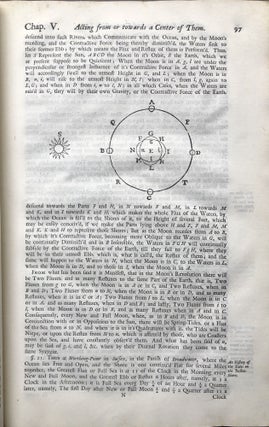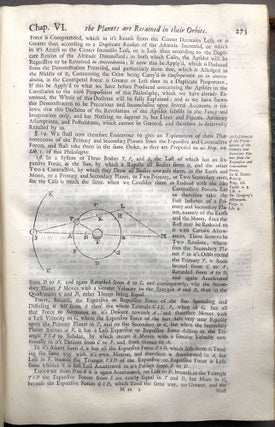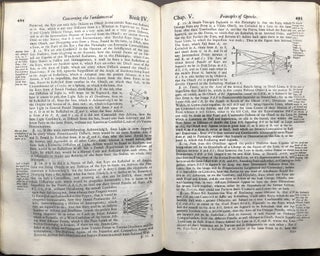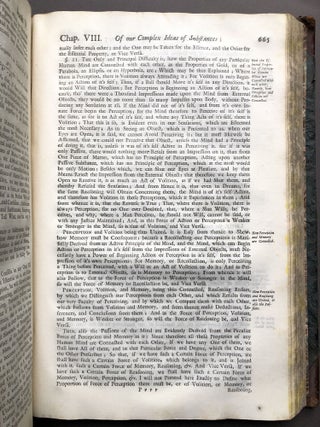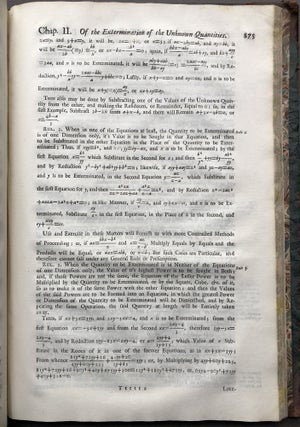The Principles of the Philosophy of the Epansive and Contractive forces. Or an inquiry into the principles of the modern philosophy, that is, into the several chief rational sciences, which are extant. In Seven Books
Cambridge: At the University Press by Cornelius Crownfield, 1727. First printing. Hardcover. Folio (13.25 inches tall), ca. 1840s half leather and green cloth boards, good copy with some neat cloth renewal, portion of the original (1840s) spine laid down. (16) 981 pp. The "philosophy" is in the Newtonian sense of natural philosophy: physics, astronomy, etc but also embracing metaphysics, etc. and references Locke, Newton and Descartes among others, however he was by no means a Lockean or a Newtonian, and tried to reconcile his deep Christian faith with the scientific thought of the day. The seven books are: 1) Concerning the Principles of Mechanical Philosophy; 2) Concerning the Principles of the Physical Astronomy; 3) Concerning the chief properties of Matter; also concerning the principles of Chymistry, Anatomy, Pneumaticks and Hydrostaticks; 4) Concerning Opticks, Dioptricks and Catoptricks; 5) Concerning the Metaphysicks and Logicks, or the Systeme of Ideas of Mr. Locke; 6) Concerning the Ethicks, or Natural Religion, of Descarte's Meditations, Mr. Locke's Essay, of Dr. Clarke, and Mr. Wollaston; 7) Concerning Algebra. From the Oxford Dictionary of National Biography: "For Greene the defence of revealed religion involved the developing of an alternative system of natural philosophy to put in the place of the dominant mechanical philosophy, which he viewed as promoting materialism. Though respectful of Isaac Newton personally, he feared that his work, too, could lend aid to the rationalists and materialists. For, as he wrote in the preface to his third and most encyclopaedic major work, The Principles of the Philosophy of the Expansive and Contractive Forces (1727), the Newtonian system was ‘much the same [as the Cartesian] as to the Principles of a Similar and Homogeneous Matter’. Hence Greene sought to replace it with what he termed a ‘truly English, a Cantabrigian, and a Clarensian one … I shall venture to call the Greenian’ (p. iv). As its title suggests, the aim of this work was to argue that matter could be resolved into a range of forces, thus reinforcing Greene's basic contention that matter was neither passive nor homogeneous as the mechanists and materialists maintained. Greene carried further the intent of his previous book ‘wherein’, as Roger Cotes reported to Newton before it was published, ‘I am informed he undertakes to overthrow the Principles of your Philosophy’ . However, along with Newton, Greene dismissed John Locke, arguing that his empiricist theory of the mind favoured the materialists and reduced mankind to ‘no Degree above an Oyster, unless that he has more senses.'" Good. Item #H16400
Price: $1,100.00

